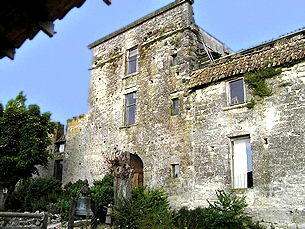
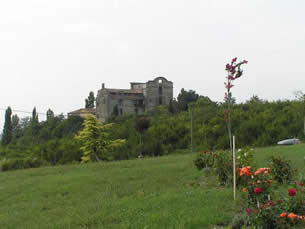
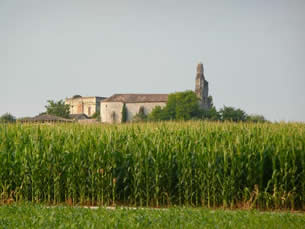
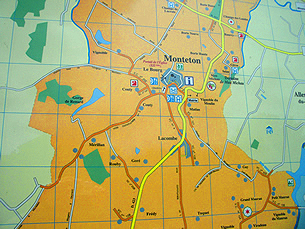
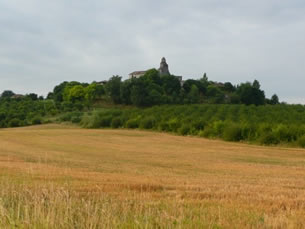
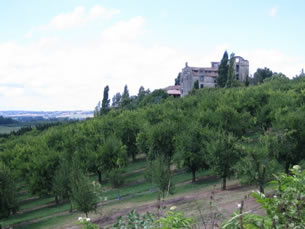
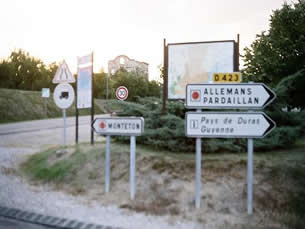
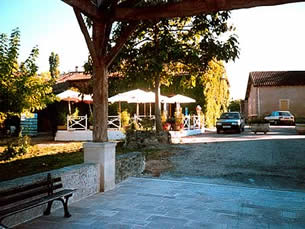
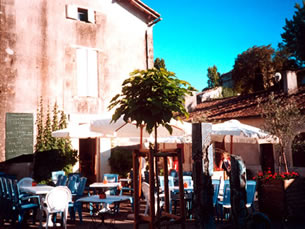
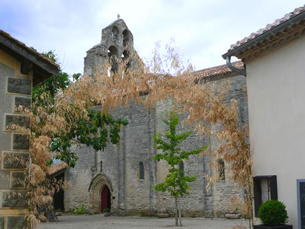
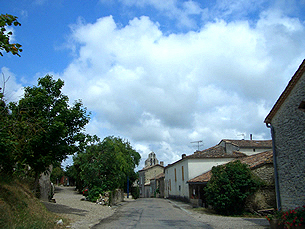
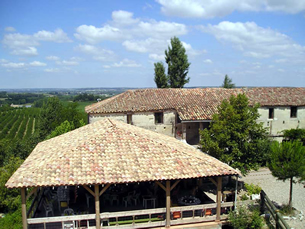
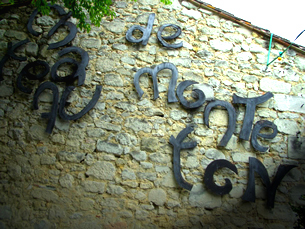
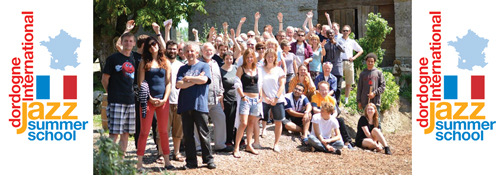














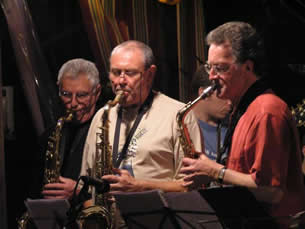
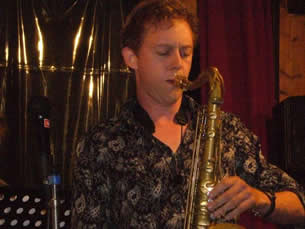
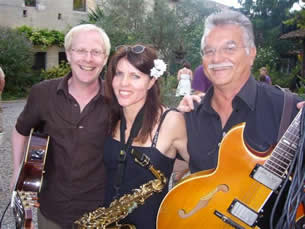
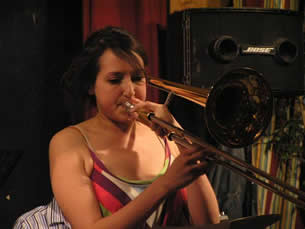
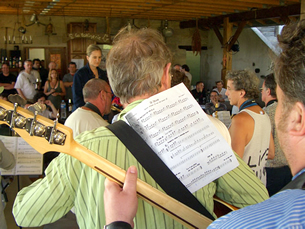
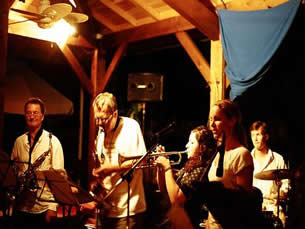
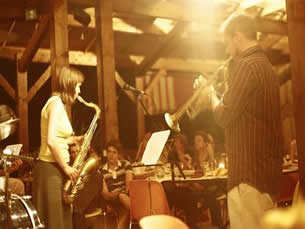
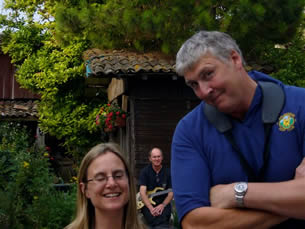
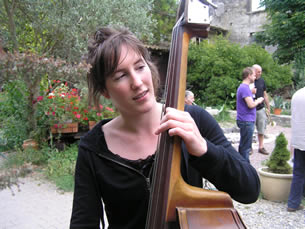
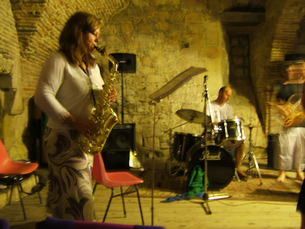
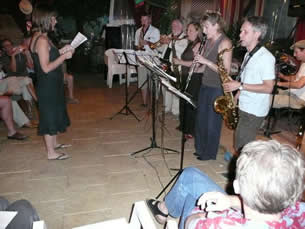
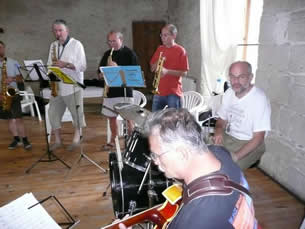
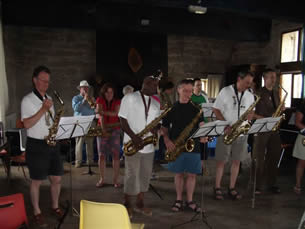

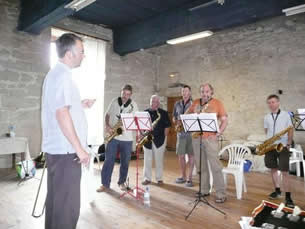
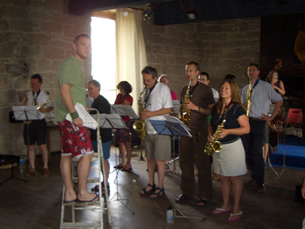
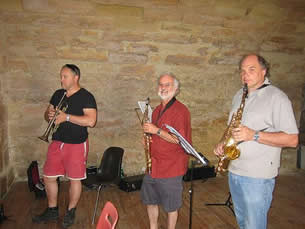
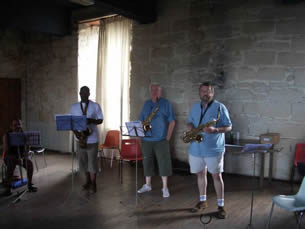
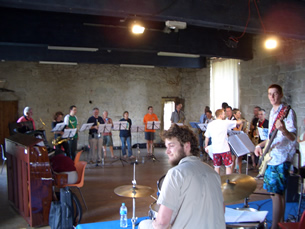

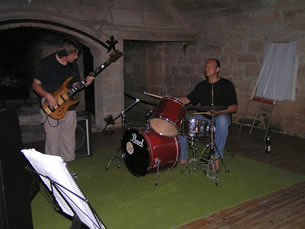
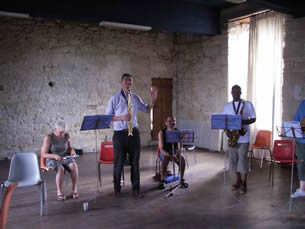
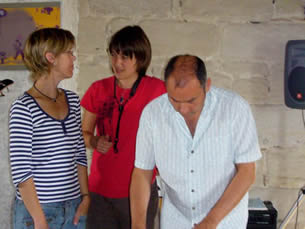
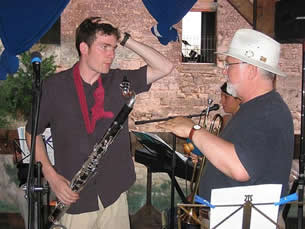
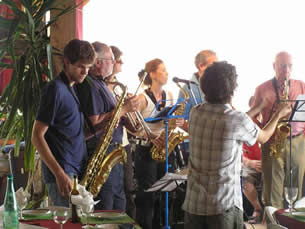
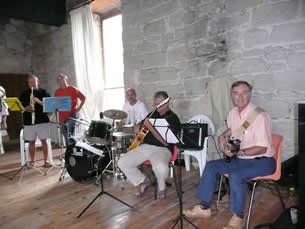
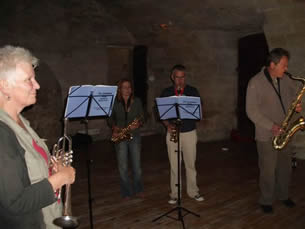
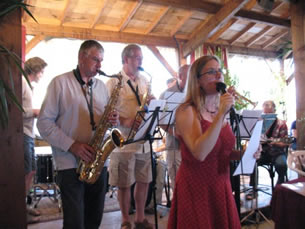
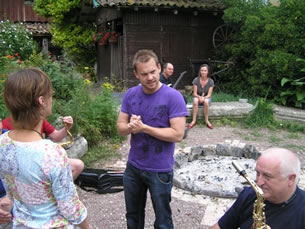
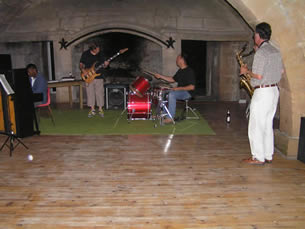
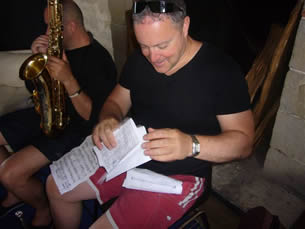
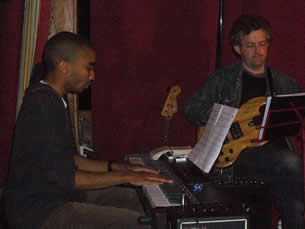
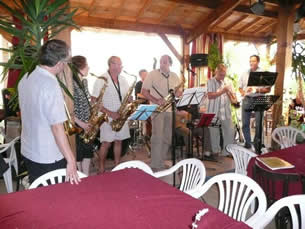
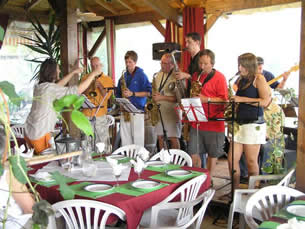
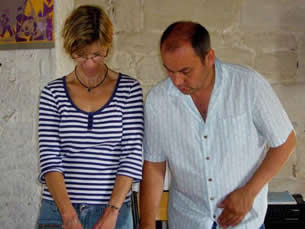
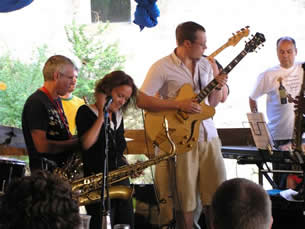

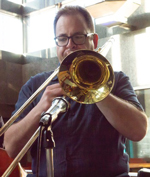
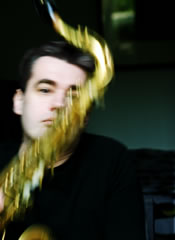
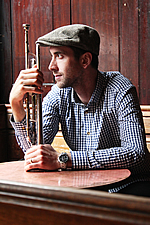
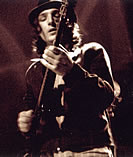
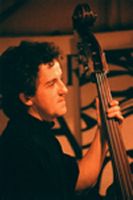
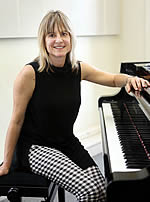
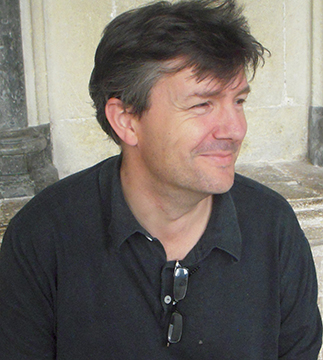
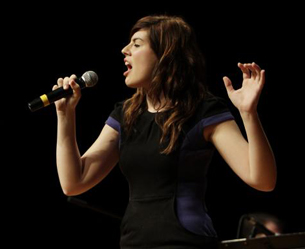
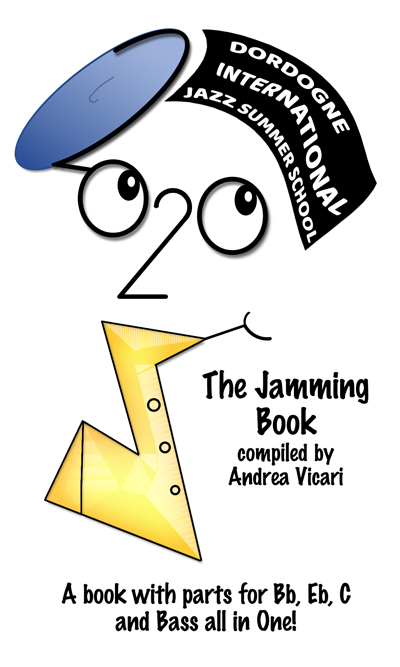 THE JAMMING BOOK
is Andrea Vicari's original curricullum designed for The Dordogne Jazz Summer School with a live trio playalong to accompany every tune.
A ready to play repertoire of well-known jazz songs to play in any jam session with parts in all keys on the same page.
To follow the online lessons with a tablet or large-screen mobile phone; you can place that device on the music stand of your piano as you study. Stop and rewind as often as needed. Play the movie in full-screen for the best experience.
The Jamming Book by ANDREA VICARI available exclusively through a Tipeee monthly subscription
THE JAMMING BOOK
is Andrea Vicari's original curricullum designed for The Dordogne Jazz Summer School with a live trio playalong to accompany every tune.
A ready to play repertoire of well-known jazz songs to play in any jam session with parts in all keys on the same page.
To follow the online lessons with a tablet or large-screen mobile phone; you can place that device on the music stand of your piano as you study. Stop and rewind as often as needed. Play the movie in full-screen for the best experience.
The Jamming Book by ANDREA VICARI available exclusively through a Tipeee monthly subscription 








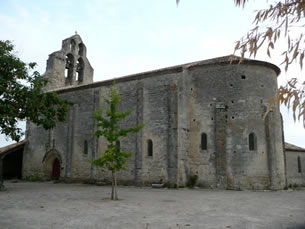
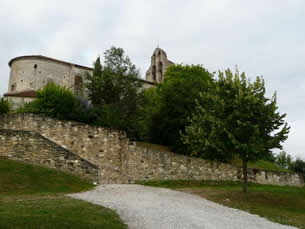
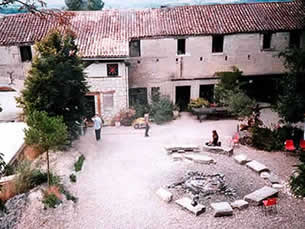
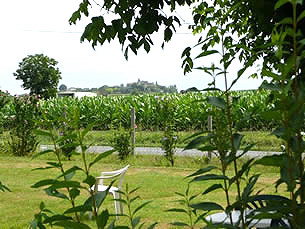
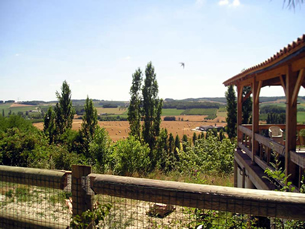




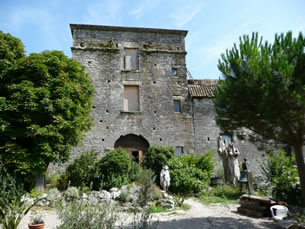
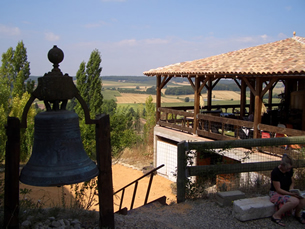
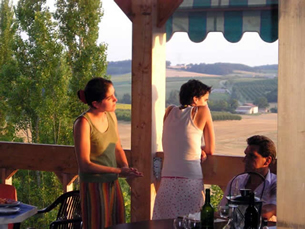
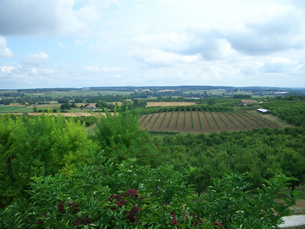
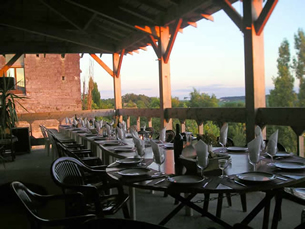
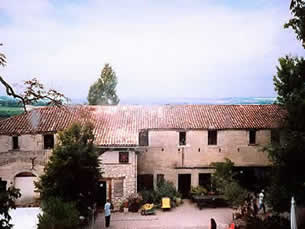
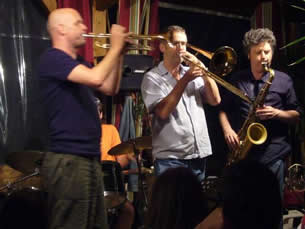
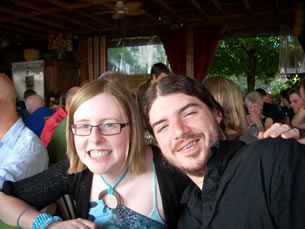
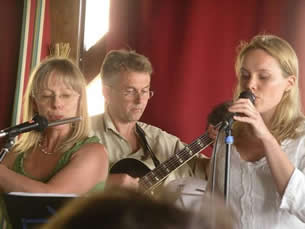
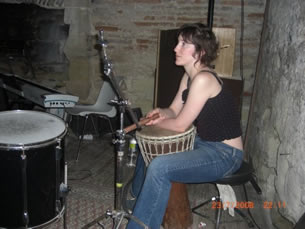

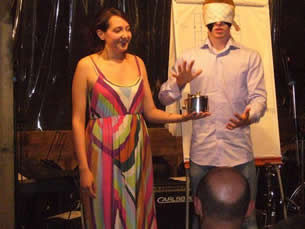
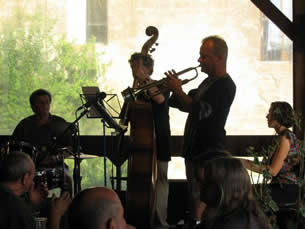

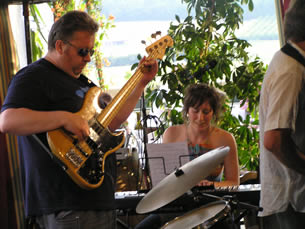
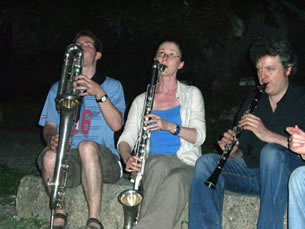
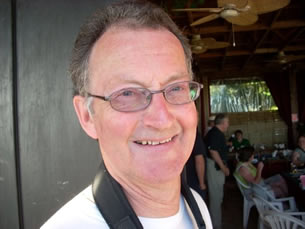
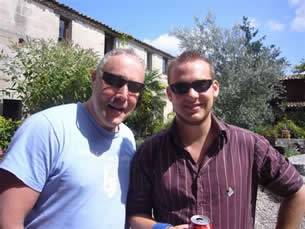
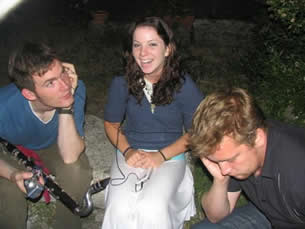
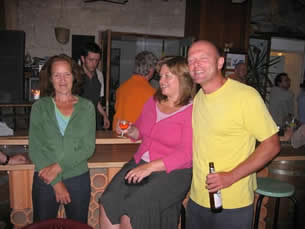
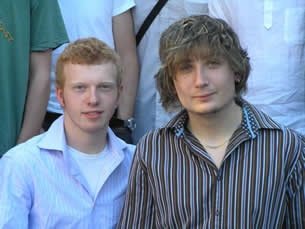
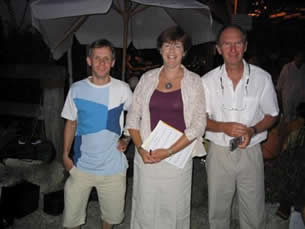
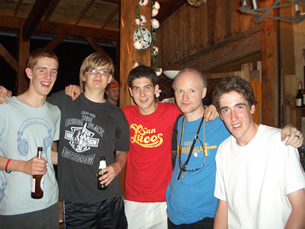
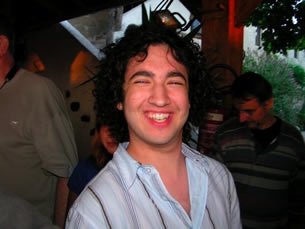
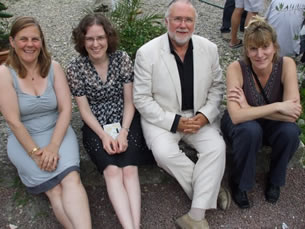
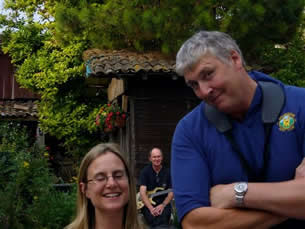
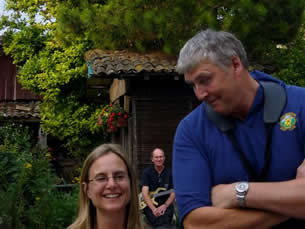
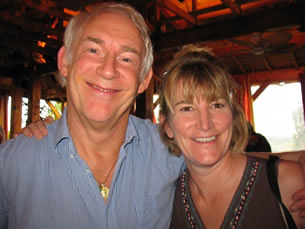
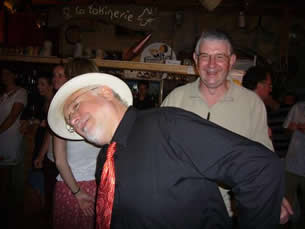
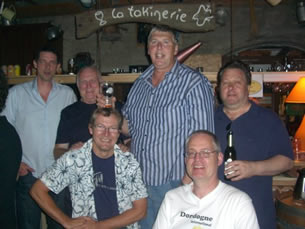
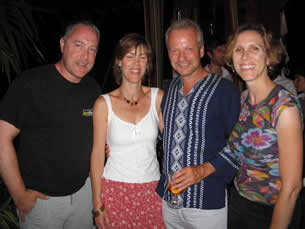
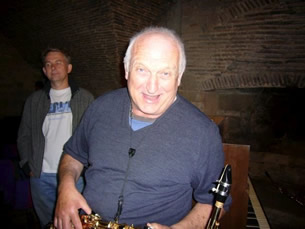
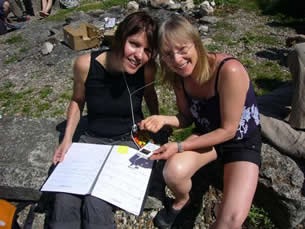
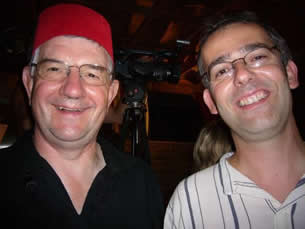
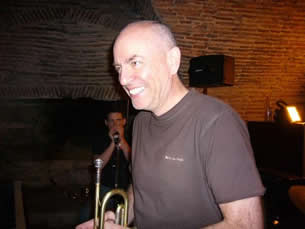
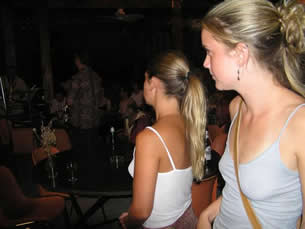
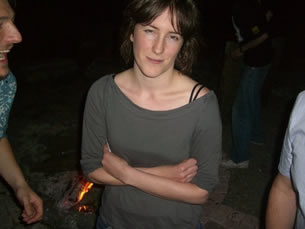
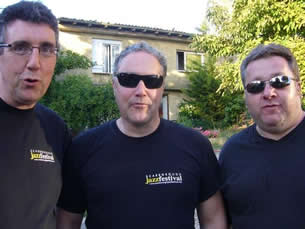

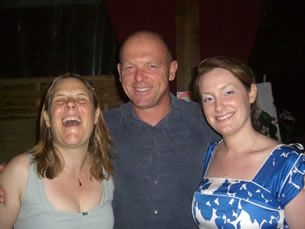
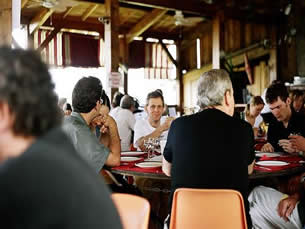
CAR HIRE
Car hire is available at Bergerac airport from the major car-hire
firms. We are based deep in the country and having your own
transport can add considerably to your enjoyment of the holiday,
particularly for those accompanied by spouses or partners. The
car journey between Bergerac and Chateau Monteton takes about
45 minutes.
Because of the near impossibility of picking anyone up on time due to cancellations and delays we’re now only offering transport out at the end of the course. Mr. Pons will be there with his coach to do two trips each Saturday. We plan to do this at 9am and Midday so if you book any connections earlier than this you’ll need to book a taxi through Fanchon. For arriving taxi’s are available and can be pre-booked from the airport and station. If you group together with fellow students to share the cost this is affordable.
COMPENSATION However to compensate you for the loss of this service we have decided to freeze prices at 2023 levels despite the continuing high inflation rate which would have added much more to the cost of your visit. This also puts all students on the same price level since before drivers were getting less for the same money.
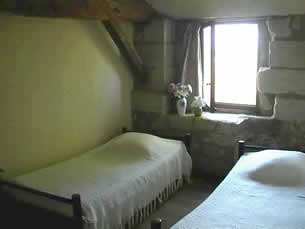
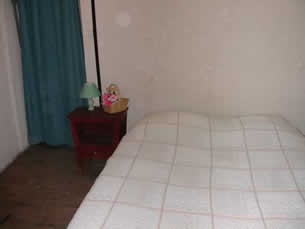
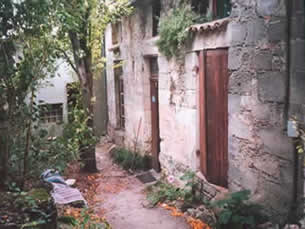
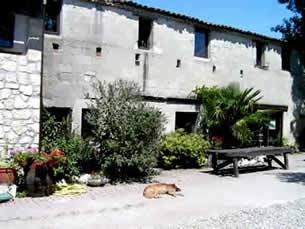
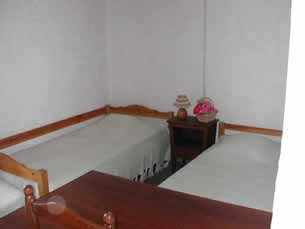
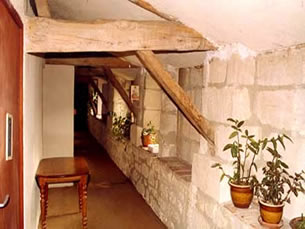
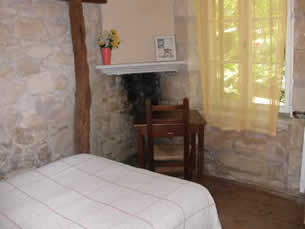
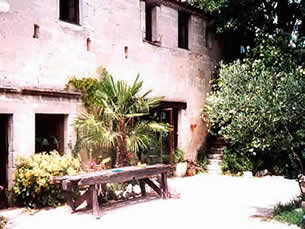
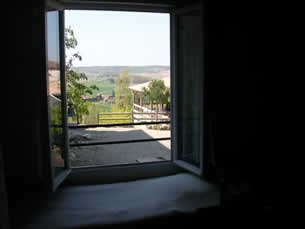
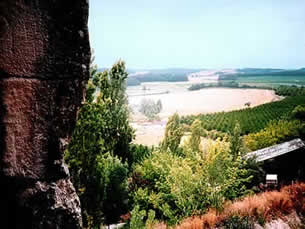
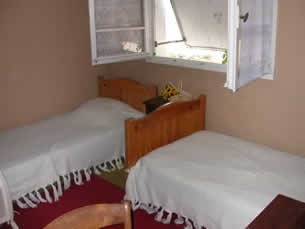
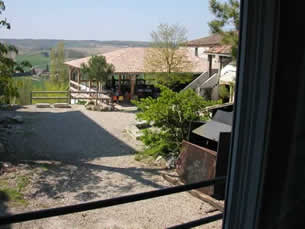
Interested but not sure ? Use the form below ..... Apologies for the captcha. Forced on me by a blizzard of junkmail.
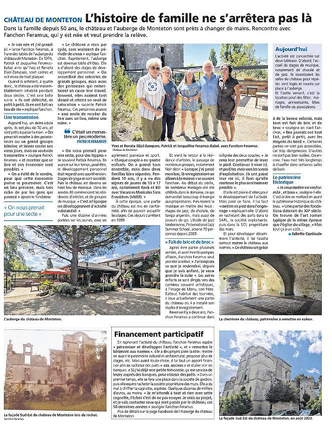
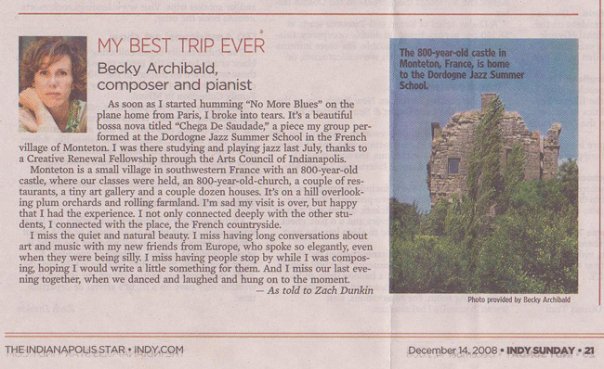 (It was especially
poignant, since earlier in the day he was rushed to the hospital
because of a fall, and didn'tknow if he would be able to use
his hand that evening.) I can hear Irene playing the simple
melody on her flute, and sweetly singing one of the verses.
I've been holding back the tears since Saturday, and they come
easily on the plane sitting by a stranger (a very kind one,
thankfully.) I'm sad it is over, but certainly happy that I
had the experience. I want to see everyone again. I not only
connected deeply with -rightthe other students at the workshop, I
connected with the place, with Montenon, with the French countryside.
I'll miss the owner's friendly face, his beautiful children
who worked behind the counter and played the dice game with
me, and Jean-Baptiste, the man who ran the art gallery nearby.
I'll miss the quietness, the natural beauty, the air, and having
our large windows wide open at night because of the lack of
bugs and humidity. I'll miss being served three splendid meals
a day, watching people saunter in one by one for morning coffee
and cereal, having long conversations about art and music and
anything except what we actually did for a living, and taking
everything at a slow place. I'll miss being with my new friends
from England, Scotland, Ireland, Norway, Austria and France,
who speak so elegantly, even when they are talking about silly
things. I'll miss having people check in on me late at night
while I'm trying to compose music, asking me how it's going,
wanting to hear a few bars, encouraging me to finish, offering
advice on chord changes and titles and styles I should write
in and hoping I'll write a little something for their instrument.
And I will miss our last evening together, after the concert,
when we relaxed and danced to salsa music and laughed and hung
on to the moment.
(It was especially
poignant, since earlier in the day he was rushed to the hospital
because of a fall, and didn'tknow if he would be able to use
his hand that evening.) I can hear Irene playing the simple
melody on her flute, and sweetly singing one of the verses.
I've been holding back the tears since Saturday, and they come
easily on the plane sitting by a stranger (a very kind one,
thankfully.) I'm sad it is over, but certainly happy that I
had the experience. I want to see everyone again. I not only
connected deeply with -rightthe other students at the workshop, I
connected with the place, with Montenon, with the French countryside.
I'll miss the owner's friendly face, his beautiful children
who worked behind the counter and played the dice game with
me, and Jean-Baptiste, the man who ran the art gallery nearby.
I'll miss the quietness, the natural beauty, the air, and having
our large windows wide open at night because of the lack of
bugs and humidity. I'll miss being served three splendid meals
a day, watching people saunter in one by one for morning coffee
and cereal, having long conversations about art and music and
anything except what we actually did for a living, and taking
everything at a slow place. I'll miss being with my new friends
from England, Scotland, Ireland, Norway, Austria and France,
who speak so elegantly, even when they are talking about silly
things. I'll miss having people check in on me late at night
while I'm trying to compose music, asking me how it's going,
wanting to hear a few bars, encouraging me to finish, offering
advice on chord changes and titles and styles I should write
in and hoping I'll write a little something for their instrument.
And I will miss our last evening together, after the concert,
when we relaxed and danced to salsa music and laughed and hung
on to the moment.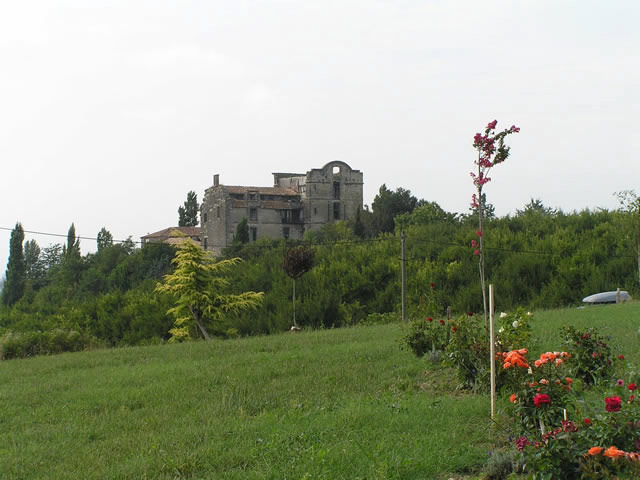 The trip there was not fun. My flight left Ben-Gurion airport
after midnight on Sunday, July 30 and, I arrived in Charles
De Gaulle airport with an hour or so to get to the Air France
window and get a boarding pass for the connecting flight to
Bordeaux. The line was so long and slow moving that I almost
missed the plane. To top things off, when I got to Bordeaux,
I found that Air France had abandoned my suitcase in Paris.
The trip there was not fun. My flight left Ben-Gurion airport
after midnight on Sunday, July 30 and, I arrived in Charles
De Gaulle airport with an hour or so to get to the Air France
window and get a boarding pass for the connecting flight to
Bordeaux. The line was so long and slow moving that I almost
missed the plane. To top things off, when I got to Bordeaux,
I found that Air France had abandoned my suitcase in Paris.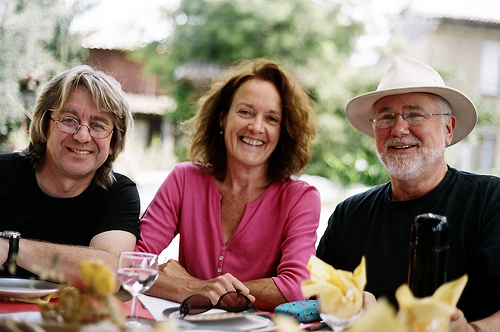
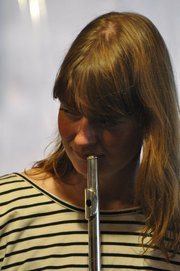
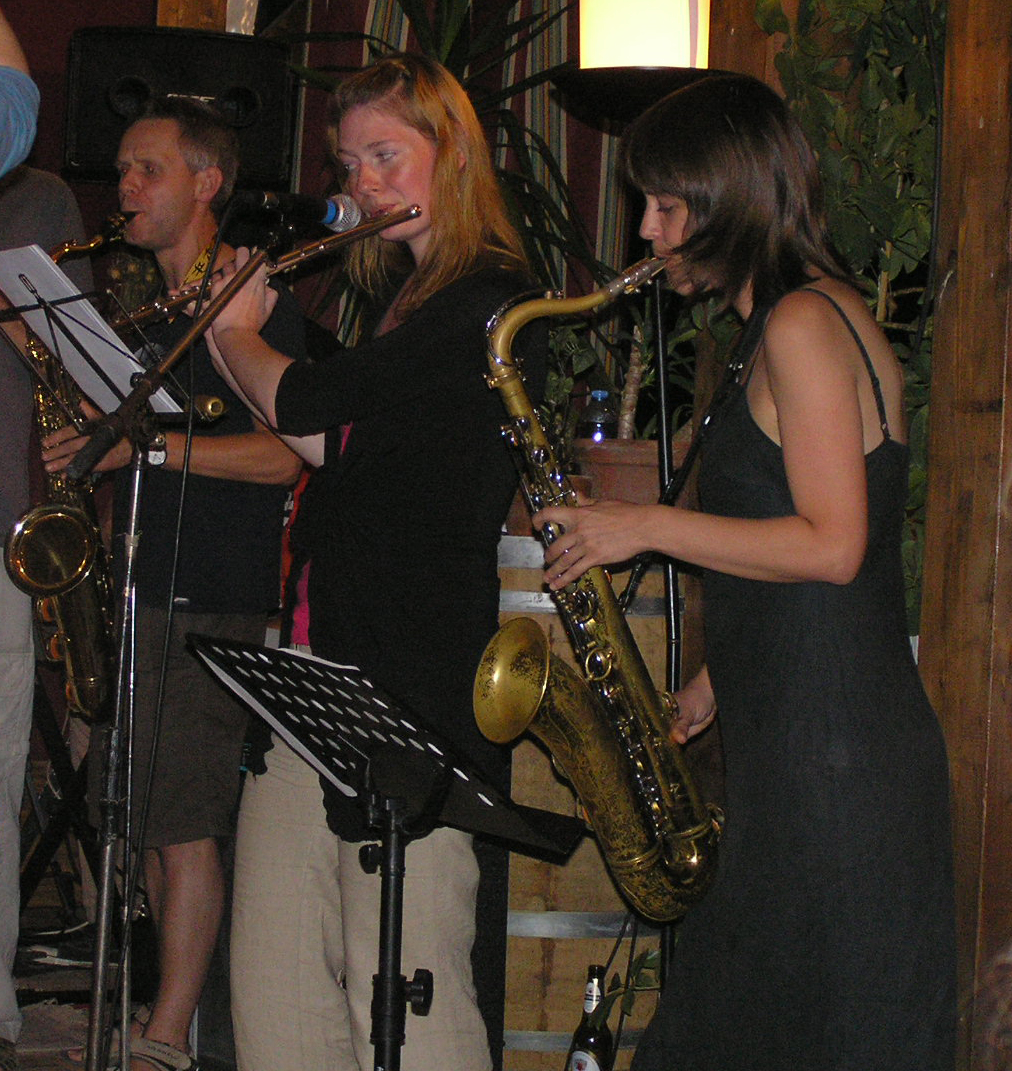
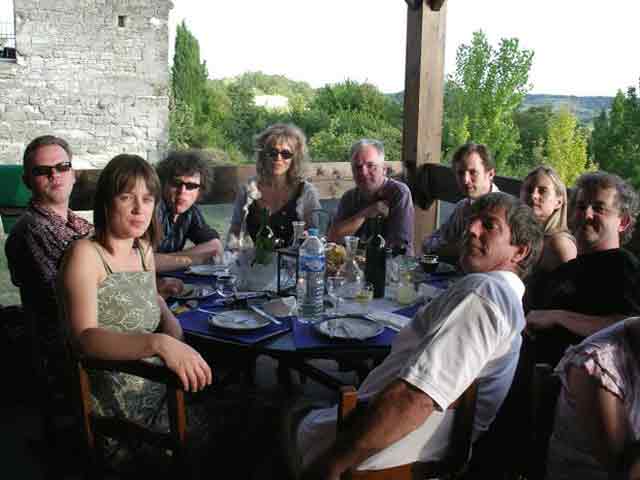 The jazz summer school had four main teachers: two saxophone
players, Julian Siegel and Ingrid Laubrock; one trumpeter, Chris
Batchelor; and one guitarist, Phil Robson. Andrea worked with
the pianists. They are all fine musicians and excellent teachers.
Chris was especially articulate, and, since he directed the
Salsa band, I was exposed to him a lot. Julian was the first
teacher I was exposed to, in a workshop for the advanced saxophone
players (it was up to us to decide what level was right for
us). He's a tall man with a soft face and a lot of black hair.
He speaks quietly, almost bashfully, and in his class he emphasized
sound production in the lower register of the horn: the most
basic stuff is also the most advanced. That afternoon he also
led my workshop group and taught us the song "Sweet Georgia
Bright" by ear, going over it patiently, phrase by phrase,
chord by chord, till we'd got it. Like all the other teachers,
he was terrifically encouraging, telling us we were doing great
all the time.
The jazz summer school had four main teachers: two saxophone
players, Julian Siegel and Ingrid Laubrock; one trumpeter, Chris
Batchelor; and one guitarist, Phil Robson. Andrea worked with
the pianists. They are all fine musicians and excellent teachers.
Chris was especially articulate, and, since he directed the
Salsa band, I was exposed to him a lot. Julian was the first
teacher I was exposed to, in a workshop for the advanced saxophone
players (it was up to us to decide what level was right for
us). He's a tall man with a soft face and a lot of black hair.
He speaks quietly, almost bashfully, and in his class he emphasized
sound production in the lower register of the horn: the most
basic stuff is also the most advanced. That afternoon he also
led my workshop group and taught us the song "Sweet Georgia
Bright" by ear, going over it patiently, phrase by phrase,
chord by chord, till we'd got it. Like all the other teachers,
he was terrifically encouraging, telling us we were doing great
all the time.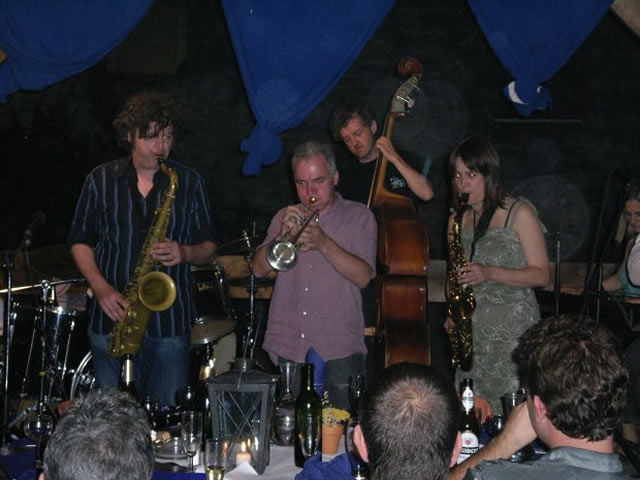 Chris Batchelor, a strong and imaginative trumpet player and
a very articulate teacher, addressed a lot of the musical issues
that concern me at the moment in a way that I could grasp immediately. He led our workshop group the next day and taught us a simple,
amusing New Orleans inspired Bill Frisell piece called "In
Deep," also by ear. He also gave a master class demonstration
that day, about breaking out of the patterns of jazz standards
by changing phrasing, by playing the chord progressions out
of phase, and other fairly technical matters. That mainly drove
home for me how firmly you have to have a piece in your mind,
in order to improvise against the structure and not confuse
yourself.
Chris Batchelor, a strong and imaginative trumpet player and
a very articulate teacher, addressed a lot of the musical issues
that concern me at the moment in a way that I could grasp immediately. He led our workshop group the next day and taught us a simple,
amusing New Orleans inspired Bill Frisell piece called "In
Deep," also by ear. He also gave a master class demonstration
that day, about breaking out of the patterns of jazz standards
by changing phrasing, by playing the chord progressions out
of phase, and other fairly technical matters. That mainly drove
home for me how firmly you have to have a piece in your mind,
in order to improvise against the structure and not confuse
yourself.